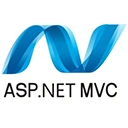ASP.NET MVC has been a popular framework for building web applications for many years. However, with the evolution of web development technologies and practices, the landscape is changing. This article explores the future of ASP.NET MVC in the context of modern web development.
1. Transition to ASP.NET Core
One of the most significant developments in the ASP.NET ecosystem is the introduction of ASP.NET Core. ASP.NET Core is a complete rewrite of the original ASP.NET framework, designed to be cross-platform, lightweight, and modular. As a result, the future of ASP.NET MVC is closely tied to ASP.NET Core.
ASP.NET Core MVC combines the features of ASP.NET MVC and ASP.NET Web API into a single framework, allowing developers to build web applications and APIs using a unified programming model. This transition encourages developers to adopt ASP.NET Core for new projects.
2. Emphasis on Microservices and APIs
Modern web development increasingly favors microservices architecture and API-driven development. ASP.NET Core MVC is well-suited for building RESTful APIs, making it a strong choice for developers looking to create services that can be consumed by various clients, including web, mobile, and IoT applications.
[ApiController]
[Route("api/[controller]")]
public class ProductsController : ControllerBase
{
private readonly IProductService _productService;
public ProductsController(IProductService productService)
{
_productService = productService;
}
[HttpGet]
public ActionResult<IEnumerable<Product>> GetProducts()
{
return Ok(_productService.GetAllProducts());
}
}
3. Integration with Frontend Frameworks
The rise of modern frontend frameworks like Angular, React, and Vue.js has changed how developers build web applications. ASP.NET Core MVC can serve as a backend API while allowing developers to use these frameworks for the frontend. This separation of concerns leads to more maintainable and scalable applications.
// Example of serving an Angular application with ASP.NET Core
public void Configure(IApplicationBuilder app, IWebHostEnvironment env)
{
app.UseRouting();
app.UseEndpoints(endpoints =>
{
endpoints.MapControllers(); // Map API controllers
});
app.UseStaticFiles(); // Serve static files for the Angular app
}
4. Enhanced Performance and Scalability
ASP.NET Core is designed for high performance and scalability. It includes features like Kestrel, a lightweight web server, and built-in support for asynchronous programming, which allows for handling more requests with fewer resources. This makes ASP.NET Core MVC a suitable choice for modern web applications that require high throughput.
5. Continuous Updates and Community Support
Microsoft has committed to continuously improving ASP.NET Core, with regular updates and new features being added. The active community surrounding ASP.NET Core also contributes to its growth, providing libraries, tools, and resources that enhance the development experience.
As ASP.NET MVC transitions to ASP.NET Core, developers can expect ongoing support and enhancements, making it a viable option for future projects.
6. Focus on Security
Security is a top priority in modern web development. ASP.NET Core includes built-in features for authentication and authorization, such as Identity and policy-based authorization. These features help developers implement secure applications that protect user data and comply with industry standards.
services.AddIdentity<ApplicationUser , IdentityRole>()
.AddEntityFrameworkStores<ApplicationDbContext>()
.AddDefaultTokenProviders();
Conclusion
The future of ASP.NET MVC is closely linked to the evolution of ASP.NET Core. As web development continues to evolve, ASP.NET Core MVC offers a modern, flexible, and powerful framework for building web applications and APIs. By embracing these changes, developers can create scalable, maintainable, and high-performance applications that meet the demands of today's users.

